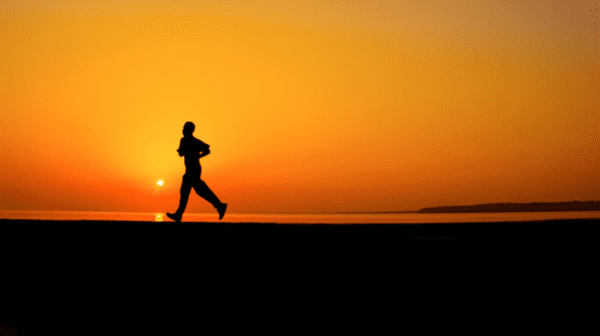Circadian rhythms of health: Why syncing with the environment is vital to wellbeing

The world in which we live is exceptionally rhythmic. I don’t mean the rhythms you might hear in a bar in the Northern Quarter; I’m referring to the daily fluctuations in our environment, like the gradual transition from light to darkness or the shifts in temperature throughout the day.
It’s a rhythmic world
This rhythmic environment is driven by the Earth’s rotation on its axis, which takes around 24 hours. Humans have been shaped by this consistent solar event so that our physiology and behaviour display repetitive patterns over a 24-hour period. These are known as circadian rhythms —the physical, mental, and behavioural changes that follow a 24-hour cycle.

Why are circadian rhythms important?
Circadian rhythms serve as an internal timing system that allow humans to perform different functions depending on the time of day. For example, cortisol, the hormone that increases alertness, is produced in the morning to increase wakefulness. As the evening approaches, cortisol levels subside, and melatonin is produced to drive sleep. These rhythms have evolved over thousands of years to allow us to adapt to and anticipate time-of-day related changes in our environment for optimal survival.
The master internal body clock: the suprachiasmatic nucleus
Circadian rhythms are set and generated by a brain area located just above the brain stem known as the suprachiasmatic nucleus (SCN). This small brain area receives inputs from the environment and adapts to changes in stimuli, such as light and temperature, by altering the firing of its neurones. The SCN can then instruct various organs in the body about the new pace of the rhythm it has learned. Once these organs receive this new set tempo, they can then conduct certain functions for the appropriate time of day.

Why are circadian rhythms important: disruptions to the clock
With exams and dissertation deadlines approaching, it is essential to understand the importance of maintaining an in-sync rhythm for health and performance during such a stressful time. Therefore, one way to gain a comprehensive understanding of their importance is by looking at what happens when the clock time falls out of sync.

Mood and cognition
Recent surveys on exam underperformance at universities have consistently received reports of students suggesting that the main reason they felt they didn’t do well in an exam was due to memory problems.
Research has demonstrated a potential reason for this reported deficit in memory and has highlighted a strong relationship between circadian disruptions, mood, and cognitive disorders. For example, multiple studies in human and non-human animals have indicated that a chronic disruption to a circadian rhythm through prolonged sleep deprivation, shift work, and jet lag can impair hippocampal memory formation.
Moreover, a sleep expert and professor of neuroscience, Matthew Walker, recently claimed that your ability to learn new information following a night of no sleep could drop by 40%. Walker stated that “A lack of sleep can inhibit your brain from making new memories.” This crucial link between memory and learning underscores the importance of getting adequate sleep, particularly during exam season, as it directly impacts our memory consolidation.
In addition to memory problems, studies have consistently indicated a strong link between circadian disruptions and mood disorders such as anxiety, depression, and stress. When you experience heightened levels of these mood disorders, individuals struggle to function effectively, which emphasises the importance of maintaining a healthy circadian system for not only your performance but, more importantly, your well-being.
Leveraging our environment and circadian rhythms for optimal health
While exams may feel daunting, this article is not meant to add to your worries. There are strategies you can use to enhance your brainpower and well-being during this critical period. Here are four key tips to leverage your circadian rhythms for your health and wellbeing.

- Light
Light is the most important signal for our circadian system. Put simply, bright, natural light helps you wake up, while dim dark environments help you sleep. A recent study indicated that seasonal affectionate depression (SAD), a subtype of depression caused by seasonal variations in mood, can be treated by an hour-long morning walk in the sun. Moreover, a recent study by the University of Manchester found that bright daytime light can enhance the strength of a circadian rhythm dramatically. Additionally, another study found that artificial light from mobile devices can acutely suppress melatonin production, delay sleep duration, and disrupt circadian rhythmicity. Together, these findings indicate that getting a sufficient amount of bright light during the day and removing artificial light at night when you’re going to bed is key to getting a good night’s sleep and increasing your health and wellbeing.
- Exercise
Do you ever find yourself getting into an unsociable sleep/wake pattern that you simply can’t break? – Get up and get running. Similarly to light, exercise is a powerful signal we can use to shift the timing of our internal clock. A recent study indicated that physical exercise in the morning can shift or advance our natural rhythms so that we wake up earlier on subsequent days. However, this same study indicated that exercise late at night is able to delay our clock, causing us to wake up later. Therefore, it is important to exercise either early in the morning, midday, or early in the evening to ensure a stable circadian rhythm.
- Eating routines
As well as light and exercise, the time at which we eat can have a potent effect on our circadian system. In the words of Dr Pot, a researcher who focused on chrono-nutrition, “We have a body clock that determines that every 24 hours each metabolic process has an optimal time when something should happen.” He continues to say “Having a large meal in the evening is actually, metabolically speaking, not the right thing to do because your body is already winding down.” Other studies have also indicated that eating outside of this optimal window can have deleterious effects on metabolic health. For example, a study of ten healthy human participants found that delaying mealtimes by five hours can shift a variety of biological markers of their internal body clock. Nonetheless, there is still research to be conducted before a “best feeding window” is found, but it is recommended that you eat within sociable hours.
- Sleep schedules
As you may know, one major aspect of life that the clock controls is when you sleep and wake up. However, as well as being a product of the clock, sleep can also have a large effect on how the clock operates. A recent study found that going to sleep and waking up at the same time each day aligns the clock and improves sleep quality. This highlights the importance of having a consistent sleep schedule.
With that all said, it’s important to be aware of something known as chronotypes. These are essentially a way of classifying individuals of the population into “sleep types” depending on the time they go to sleep and wake up. Due to our genetics, everyone has a slightly different chronotype. Some people are early larks, waking and sleeping early, while others are night owls, rising and sleeping late. Therefore, prioritising these tips based around your own schedule is essential for maintaining peak health and performance, particularly during this demanding period.







